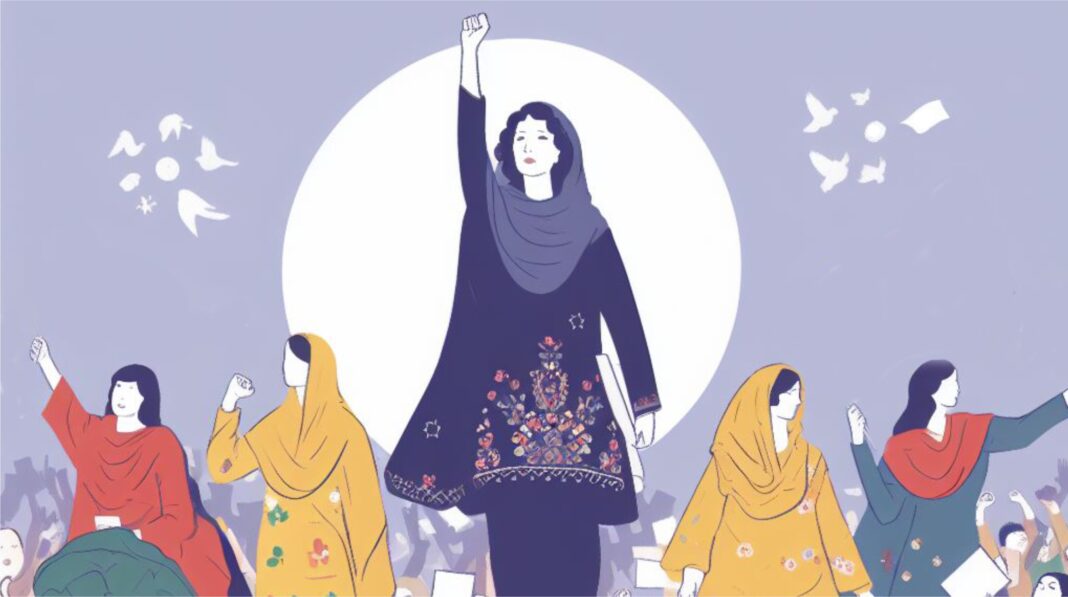Women councilors face culture and social barriers in performance of their functions. Find out more in this Focus Group Discussion.
The Free and Fair Election Network (FAFEN) conducted focus group discussions for exploring the challenges faced by women councilors and voters during the 2018 elections. The participants, representing all four provinces, shed light on various issues ranging from voter registration to participation in electoral processes.
Many of the issues identified by women across the country were common, underscoring the need for collaborative and concerted efforts by political and electoral stakeholders to create an enabling environment for their active participation. Some of the key findings of these FGDs included:
Women Councilors & Socio-Cultural Barriers
A Female participants highlighted cultural and social barriers hindering their active participation in politics. Issues such as male dominance, and the need for permission from family heads were recurring themes. Even if a woman successfully entered politics, male dominance persisted, limiting their autonomy.
“Even if a woman is elected as a Councilor of a union council she cannot go to attend the meeting without any male member of the family” - Women Councilor
Women are often not allowed to directly interact with men in public settings. In numerous instances, the election campaigns of women candidates are orchestrated by male members of their families. This dynamic significantly hinders their chances of success, as their limited involvement in the campaign process diminishes their advocacy efforts. While women candidates can easily conduct door-to-door campaigns to connect with female voters and seek their support, the inability to approach men directly for their votes results in a missed opportunity to engage a substantial portion of their potential voter base.
Discriminatory Attitude Towards Women
In the event that women manage to overcome one familial barrier, they encounter another in the form of institutional and party-specific preferences and requirements. Many women emphasized that party leaders lack sufficient confidence in female candidates, often favoring male candidates over them.
“Women can participate in the elections only through a political party’s platform. There is no room for them to contest the elections as an independent candidate because people do not generally vote for an independent women candidate.”
The Women Councilors predominantly expressed dissatisfaction with the discriminatory behavior exhibited by their respective party leadership. A primary concern was the apparent bias during the ticket allotment process for contesting elections, where women were rarely the first choice. Parties consistently prioritize male candidates when distributing tickets, reserving seats for women instead. The consensus among the women was that no party allocates tickets to women for contesting elections on general seats. Furthermore, they perceived women candidates as being at the mercy of party leadership, vulnerable and subject to replacement at any time at the discretion of the party leadership.
Women also face discrimination at the decision-making level within political parties. Even when a woman is elected, she is often denied decision-making power or an active role as a member of the parliament or district council. In the local government system, the role of women is rendered less effective as they are neither allocated funds nor granted decision-making authority.
Limited Opportunities
Women from economically disadvantaged backgrounds faced additional barriers, with limited opportunities for lower-middle-class and educated women to participate actively in politics. Tribal areas, in particular, were noted as having deeply ingrained traditions that posed significant challenges for female political engagement..
Financial Dependence
Financial independence emerged as a significant concern. Women candidates lamented the lack of financial support, as political parties often preferred male candidates with strong political backgrounds.
Nomination Process Complexity
Participants pointed out the complicated nomination process as a deterrent for women contesting elections. The Election Commission of Pakistan (ECP) was urged to simplify the submission of nomination papers, especially for rural women.
Lack of Awareness
A pervasive lack of awareness among women councilors and voters was highlighted. Participants stressed the need for training and advocacy campaigns to educate women about the electoral process, their rights, and the importance of their votes.
Lack of Faith in the Abilities of Women as Leaders
A substantial number of women councilors have raised concerns about the non-issuance of development funds by district governments to female councilors. Participants noted that women were being overlooked and denied their right to receive development funds, with predominantly male members being the recipients. One woman councilor expressed that such obstacles demoralize women and deter them from participating actively in politics or the electoral process.
“During meetings, male councilors often dismiss any suggestions put forth by their female counterparts. Participants voiced their frustration, stating that as elected women councilors, they lack power or authority, and their input is often ignored by their male counterparts"
Participants highlighted that although the provincial government releases funds for district governments, women are not allocated a share of these funds. It was emphasized that district governments should ensure equitable distribution of these funds to women, enabling them to utilize the resources for the improvement of women’s conditions in their respective areas.
Women encounter a dual set of challenges—first overcoming cultural and patriarchal barriers, and then contending with structural and institutional obstacles that hinder their progress. There is a continuous imperative to cultivate a women-friendly environment, promote their active political participation, and support the enhancement of their expertise so that they can operate on an equal footing with their male colleagues.


